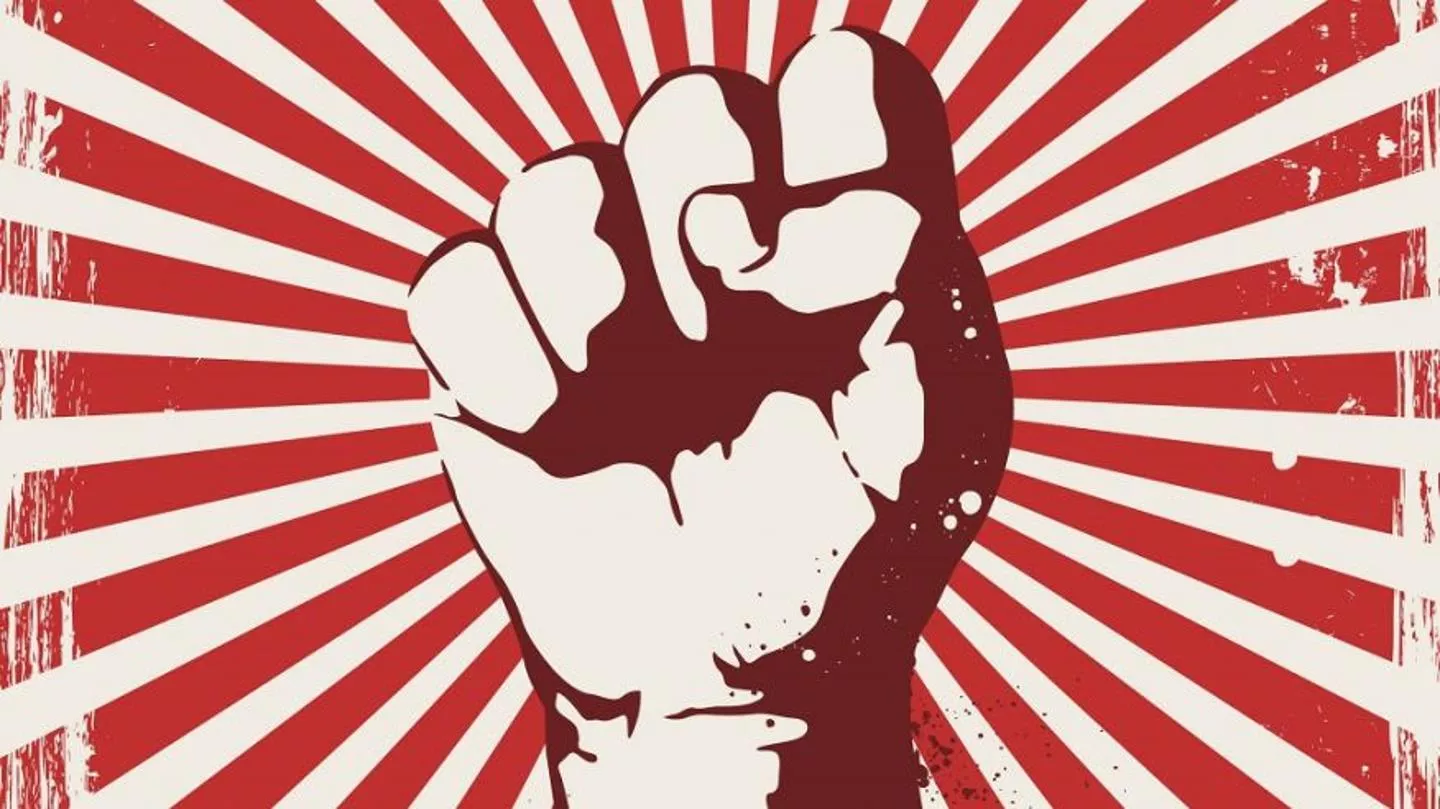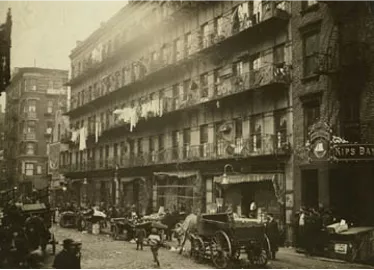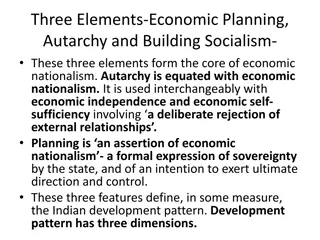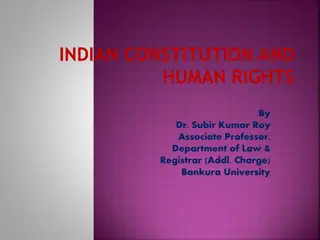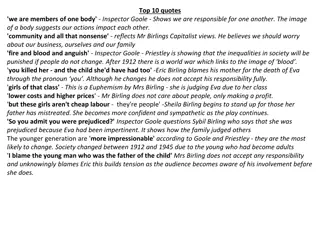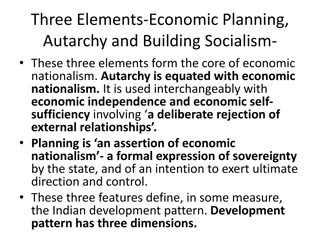Socialism in America
Americans facing unsafe working conditions, unfair pay, and discrimination. Karl Marx and The Communist Manifesto's impact. The rise of socialism in America from Utopian Communities to Social Democracy engendering 20th-century socialist beliefs.
Download Presentation

Please find below an Image/Link to download the presentation.
The content on the website is provided AS IS for your information and personal use only. It may not be sold, licensed, or shared on other websites without obtaining consent from the author.If you encounter any issues during the download, it is possible that the publisher has removed the file from their server.
You are allowed to download the files provided on this website for personal or commercial use, subject to the condition that they are used lawfully. All files are the property of their respective owners.
The content on the website is provided AS IS for your information and personal use only. It may not be sold, licensed, or shared on other websites without obtaining consent from the author.
E N D
Presentation Transcript
Socialism in America Presented by: Adiella Cotapike, Etienne Weigreyniak, and Yoshie Wingate
U.S. Problems leading to people to choose socialism Americans faced large amounts of unsafe working conditions, as well as unfair pay. Immigrants also face discrimination as well as having limited rights, and completely unhealthy living conditions. The streets were completely filthy with the streets being cramped and filled with people. Diseases as well as poor health conditions, in housing, factories, and in food industry.
Karl Marx and The Communist Manifesto Karl Marx was born on May 5 1818 and died March 1883 Created the Communist Manifesto a written Pamphlet of how the working class would rise up against the social elite. It was published in February of 1848 in 46 Liverpool in the the street of London. Within forty years a large portion of the world adopted the socialist labour parties, but none of them chose the Communist Party as their name until the Russian Bolsheviks. The Communist Manifesto was well received by German immigrants and was later brought to the United States by German immigrants.
The dangerous class, the social scum, that passively rotting mass thrown off by the lowest layers of old society, may, here and there, be swept into the movement by a proletarian revolution. ...in America as in Germany, [it] has stripped him of every trace of national character.
Marxism For and Against The revolutionary core of Marxism has obvious ramifications with the previous question of marxism as political reality. The legacy of Marx is the magisterial figure from whom we must all learn if we are to carry on the task of critical inquiry that he began.
Beginning of American Socialism Socialism is the practice of being a community, where production, distribution, and exchange is regulated as a whole In 1825, Robert Owen s Utopian Communities began the uprising of socialist ideas From 1857-1888, the large amount of German Immigrants brought Social Democracy to America The books The Cooperative Commonwealth by Laurence Gronlund and Looking Backward in 1988-1897, started to create 20th century American socialist beliefs
Robert Owen Born in 1771 in Newton, Montgomeryshire, Wales, Robert Owen was a British socialist in the 1790 s Wanted to introduce principles in the conduct of the people and rejected the competitive business system because these had to do with character formation Believed in one man s gain would not be another man s loss and also thought that a healthy, happy environment would shape individual character along the right social lines Wanted to not only educate children, but adults as well
American Socialism in the Early 1900s From 1897-1900s, the Social Democracy of America and Socialist Labor party form from Eugene Debs Socialist parties were apart of the Progressive Era; where corruption in the government was trying to be reversed and began with the election of the 26th president, Theodore Roosevelt in 1901 Upton Sinclair founded the Intercollegiate Socialist Society which its purpose was to spread the cause of socialism in 1905
Eugene Debs Born in 1855, Eugene V. Debs was a labor organizer and the Socialist Party s candidate for U.S president five times between 1900-1920 His union conducted a successful strike for higher wages against the Great Northern Railway in 1894 and became president for the American Railway Union the year before Went to jail for leading the Chicago Pullman Palace Car Company Strike and became renown after that
Upton Sinclair Upton Sinclair was born in Maryland in 1878 and became known for His involvement in socialism with the best-selling novel The Jungle (1906) Sinclair stated that, the ideals of America stressed equality and brotherhood, but in all actuality, the rich did indeed get richer and the poor got poorer. No equality. No brotherhood Many people aren t able to separate politics with the economic system, and The Jungle was seen as an attack on the meatpacking industry Sinclair s goal was to attain what he called the democratic socialism in the US
The Downfall of Socialism The election of 1912 made the socialist party lose thousands of members due to many voting for Woodrow Wilson, who presented more progressive ideas rather than their own party By 1920, The United States passed the Espionage Act and Sedition Act of 1918 which jailed those who were unloyal to the U.S. by not supporting WW1. Socialists believed going to war was of capitalist interests therefore they did not support U.S. involvement in war The Red Scare was started by socialist/communist strikes and the fear of fascism in the United States. Any suspected socialist or communist individuals were thrown in prison.
Effects of Early 20th Century American Socialism Socialism in the 1900 s led to the modern National Socialist Movement whose goal is to purify Americans by (non)violence They reject democracy and human rights because they believe there are times that the individual must be spared for the community These individuals are also known as Neo-Nazis, Antisemitics, or Fascists This party shares a love for Adolf Hitler and a hate for Jews and other minorities such as LGBTQ and sometimes Christians. They believe in similar ideas that Nazis held in the 1930s and 1940s. The Socialist Party USA believes in Democratic Socialism Equality everywhere so everyone can live in harmony together Rights for women, cultural freedom, self-governed individuals Distribution of goods should be controlled by the public
Works Cited Davenport, Tim. "INTERCOLLEGIATE SOCIALIST SOCIETY (1905-1921) Organizational History." INTERCOLLEGIATE SOCIALIST SOCIETY (1905-1921) Organizational History. Early American Socialism, n.d. Web. 31 Jan. 2017. "Socialism in America." Socialism in America. Online HIghways, n.d. Web. 30 Jan. 2017. Haute, Terre. A Brief History of Socialism in America. N.p.: Debs, n.d. Socialist Party of America. Marxist.org. Web. 30 Jan. 2017. <https://www.marxists.org/history/usa/parties/spusa/1900/0100-sdp-briefhistorysoc.pdf>. Kreis, Steven. "Robert Owen, 1771-1858." Historyguide.org. The History Guide, 13 May 2004. Web. 31 Jan. 2017. History.com Staff. "Eugene V. Debs." History.com. A&E Television Networks, 2009. Web. 31 Jan. 2017. "Upton Sinclair." Biography.com. A&E Networks Television, 07 Aug. 2015. Web. 31 Jan. 2017. Hickman, Kennedy. "Woodrow Wilson's Fourteen Points: A Path to Peace." About.com Education. About Education, 29 Aug. 2016. Web. 31 Jan. 2017 "Principles." Socialist Party USA. Socialist Party USA, n.d. Web. 31 Jan. 2017. Robert L. Heilbroner. Marxism For and Against. George J. McLeod Limited, Toronto Canada, p.60 and p.45 Eric Hobsbawm. The Communist Manifesto, A Modern Edition. Verso 1998. Eric Hobsbawm, English 1848 180 Varick Street, New York NY.


